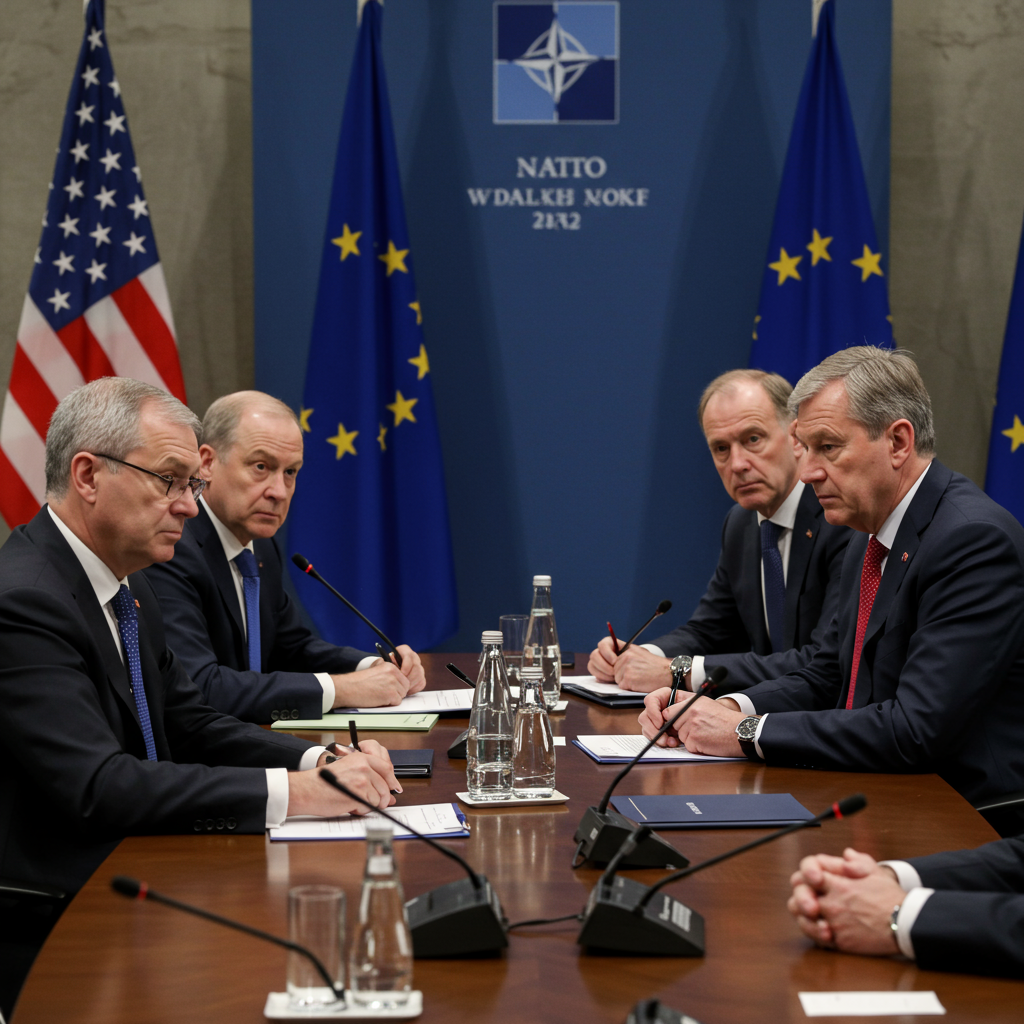Following overnight US airstrikes targeting key Iranian nuclear facilities, UK Labour leader Sir Keir Starmer has issued a stark warning about the risk of escalation in the Middle East and beyond, urging Iran to return immediately to the negotiating table.
Speaking after the US action, Starmer emphasized the urgent need to “reassure the British public” by working to stabilise the situation and find a diplomatic path forward. “All our focus has been on de-escalating, getting people back around to negotiate,” he stated, highlighting the clear threat of conflict spreading.
UK Position and Awareness
Starmer confirmed there was no direct UK involvement in the US strikes but that the UK was informed in advance. He reiterated the long-standing British position that “Iran cannot have a nuclear weapon,” describing stability in the region as the top priority.
Business Secretary Jonathan Reynolds offered a nuanced perspective, stopping short of fully welcoming the strikes but firmly stating that preventing Iran from obtaining nuclear weapons is unequivocally in the UK’s interest. While acknowledging a preference for a different diplomatic approach, Reynolds commented that “Iran didn’t listen to the diplomatic calls for a peaceful solution. That was a mistake.” He drew a clear distinction between the current situation and the 2003 Iraq War.
US Strikes Target Key Facilities
The United States confirmed striking three Iranian nuclear sites: Natanz, Isfahan, and Fordo. US President Donald Trump later declared the operation a “spectacular military success,” warning Iran of “far greater” attacks if it did not make peace quickly, and even claiming the strikes resulted in the “complete destruction of Iran’s nuclear capacity.” Israeli President Isaac Herzog also stated that Iran’s nuclear program had been hit “substantially.”
These US strikes came in the context of heightened tensions, including recent reciprocal exchanges of fire between Israel and Iran targeting military sites. An immediate aftermath saw Iran launch a ballistic missile barrage against Israel, further demonstrating the volatile situation.
Iran’s Nuclear Ambitions: Claims vs. Concerns
Iran maintains that its nuclear program is peaceful and that recent uranium enrichment to 60% is purely for research and development. However, this claim is met with international skepticism. The International Atomic Energy Agency (IAEA) has reportedly warned that Iran has amassed enough enriched uranium potentially sufficient for nine nuclear bombs, labelling this quantity a “source of legitimate concern.”
Iran’s ambassador to the UK, Seyed Ali Mousavi, condemned the US strikes as “outrageous” and a “violation of the UN charter,” warning they would have “everlasting consequences.” He confirmed Iran was considering the “quantity and quality” of its reaction, while denying any intention for military attack and blaming diplomatic failures on “Netanyahu.”
Global Reactions and Calls for Diplomacy
The US action drew widespread international reaction, with many expressing deep concern over the potential for a wider conflict.
United Nations Secretary-General António Guterres described the strikes as a “dangerous escalation” threatening international peace.
European Union leaders and foreign ministers urged all sides to de-escalate and return to negotiations, stressing that Iran must never acquire nuclear weapons and that diplomacy is the “only way.”
Germany, France, Italy, and Spain echoed calls for restraint, diplomatic solutions, and immediate negotiations, including potential talks involving Iran, the US, and Israel.
Russia and China strongly condemned the US action as a violation of the UN Charter, urging a cessation of attacks and a return to dialogue.
Regional nations like Oman and Iraq also condemned the strikes as dangerous military escalation and violations of international law, while Saudi Arabia expressed “deep concern.”
Conservative leader Kemi Badenoch supported the US action as decisive against a regime threatening the UK, while Liberal Democrat leader Ed Davey stressed the essential need for the UK to de-escalate and achieve a diplomatic solution.
Diplomatic Efforts Underway
Amidst the escalating tensions, diplomatic efforts are ongoing. Foreign Secretary David Lammy recently travelled to Washington to meet US officials, discussing how “a deal could avoid a deepening conflict.” Lammy indicated that “a window now exists within the next two weeks to achieve a diplomatic solution.” He was also part of a European contingent that met with Iranian officials prior to the US strikes.
The UK government continues to monitor the situation closely, with Starmer scheduled to chair an emergency Cobra response meeting. Reflecting the heightened risk, the Foreign, Commonwealth and Development Office (FCDO) has advised against all travel to Israel, the Occupied Palestinian Territories, and Iran. The global focus remains on averting further escalation and compelling Iran back to the negotiating table to address concerns about its nuclear program.

